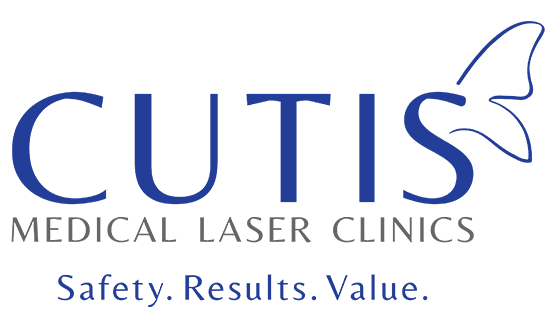Facial Veins

Do you see small red lines or splotches on your face that look like tiny tree branches or spider webs? If so, you have broken blood vessels or spider veins. These refer to the small, dilated blood vessels located beneath the surface of the skin (commonly on the nose and cheeks). They often take on a spider web-like appearance; hence the nickname spider veins.
Telangiectasia is the official medical term for spider veins. The veins have a linear pattern and are usually red, blue or purple in color. Broken blood vessels can cause facial redness, but they are harmless and do not cause any discomfort. Unfortunately, they can cause you to feel self-conscious or embarrassed about their appearance.
What causes facial veins?
Some people are more prone to developing spider veins on their face than others, but it can happen to anyone at any age. Here are the possible causes and contributing factors that can increase your risk of getting facial veins.
- Genetics – Spider veins on the face tend to run in families. If a close relative like your parents had them, you are also likely to develop facial veins yourself.
- Aging – As we age, our skin loses its elasticity and gets thinner. This can also cause the facial veins to weaken and become visible. The regenerative or recuperative ability of the skin also decreases with age, which is why spider veins are more common in older people than younger ones.
- Sun exposure – Ultraviolet or UV rays can damage the skin, which can result in the enlargement of blood vessels. This can then bring them closer to the skin and lead to the appearance of facial veins.
- Hormones and pregnancy – Hormonal fluctuations in pregnancy (increase in estrogen) can also cause facial veins. Spider veins related to pregnancy usually disappear or heal on their own after giving birth.
- Rosacea – This is a common skin condition that causes redness, as well as small, pus-filled bumps on the face. People with this condition often have broken blood vessels or spider veins on their face.
- Alcohol consumption – Drinking alcohol can cause your skin to flush or become red due to dilated blood vessels. Excessive drinking or daily consumption may result in longer-lasting facial redness and spider veins.
- Facial injuries – These can cause bruising on the face, which may also cause the blood vessels to become visible. As the bruise heals or fades, so do the spider veins.
- Sudden, extreme pressure on the face – A hard/strong sneeze or vomit may cause pressure on facial veins. This then contributes to the appearance of broken or enlarged blood vessels.
How can we help?
Here at Cutis Laser Clinics, we know how facial or spider veins can sometimes make you feel self-conscious about your appearance. We provide nonsurgical facial vein procedures that can effectively treat or reduce unsightly facial veins. We will also give you preventative measures for future broken blood vessels or spider veins.
Your individualized treatment plan, depending on various factors such as your acceptable social downtime, your expected time frame and budget, will be explained in detail during your consultation with our Harvard trained Medical Director, Dr. Sylvia Ramirez.
